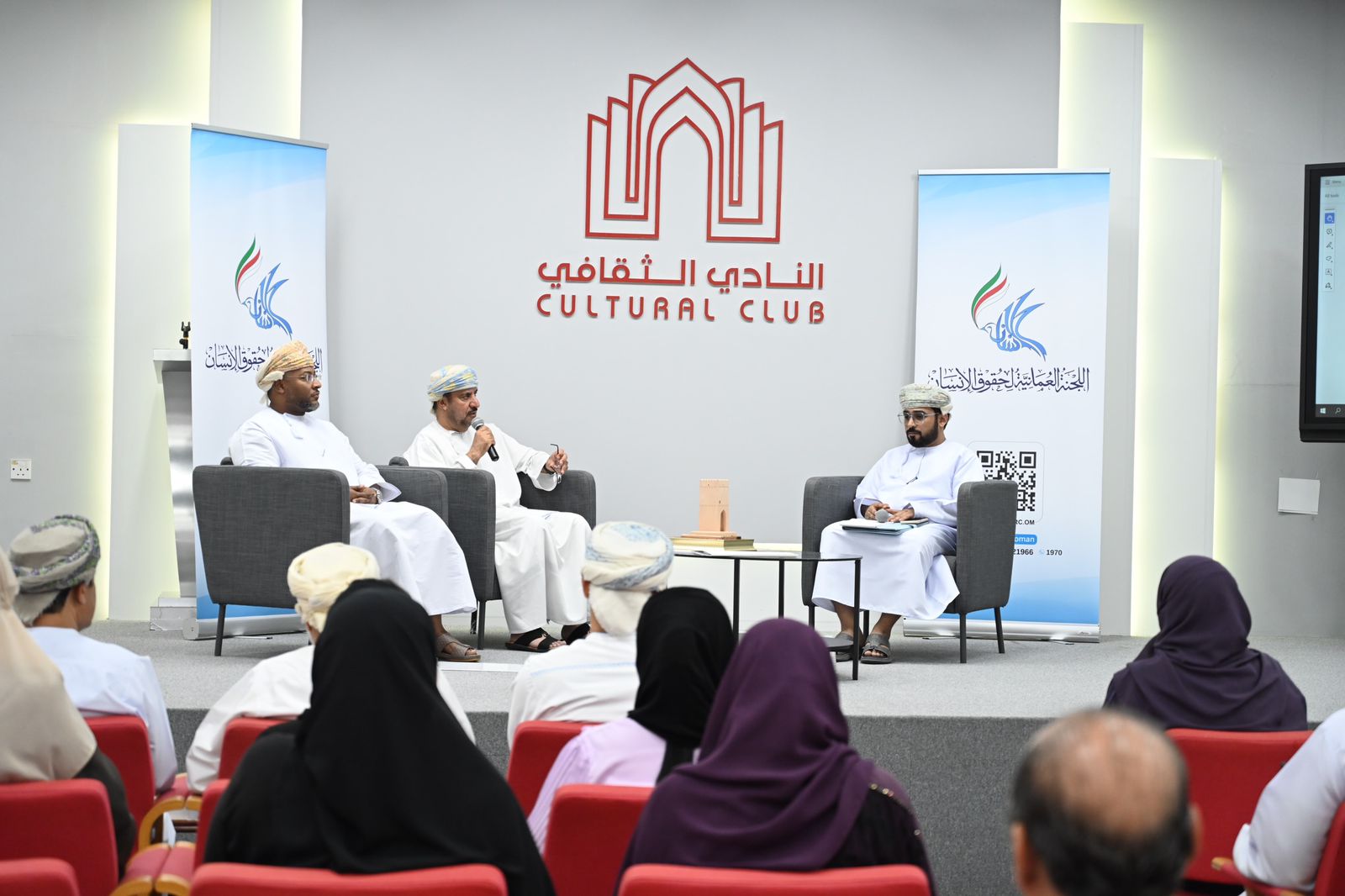In collaboration and coordination with the Cultural Club, the OHRC organized a dialogue session on cultural rights as outlined in the International Covenant on Economic, Social, and Cultural Rights. The session took place at the Cultural Club headquarters in Muscat.
In the inaugural paper, Prof. Dr. Rashid bin Hamad Al-Balushi, the OHRC Chairman, delved into the concept and classifications of human rights, alongside the current state of cultural rights in the Sultanate of Oman. He delineated human rights as universal legal guarantees designed to protect individuals and groups from actions that encroach upon fundamental freedoms and human dignity. These rights empower individuals to lead lives of dignity, free from fear and deprivation. They constitute a set of rights attached to human personality, stipulated in international charters, and inviolable under any circumstance. Such rights transcend all forms of discrimination, including those based on race, color, gender, language, religion, political affiliation, or any other criteria.
He highlighted that human rights possess distinctive attributes, namely their inherent, universal, inalienable, indivisible, and interdependent nature. Furthermore, human rights are categorized into various divisions, which are delineated based on historical evolution into four generations, as well as classified according to the recipients into individual rights, collective rights, and group rights.
Regarding the concept of cultural rights, Prof. Dr. Rashid bin Hamad Al-Balushi, the OHRC Chairman, underscored that they encompass all distinguishing aspects, encompassing the spiritual, material, intellectual, and emotional facets, which characterize a society or social group. In addition to encompassing arts and literature, cultural rights entail the ways of life, communal coexistence, value systems, traditions, and beliefs of a community. These rights constitute a significant component of social cohesion and are intricately linked with the rights to education and freedom of thought, conscience, and religion. Moreover, cultural rights embody five interconnected and essential attributes: availability, accessibility, acceptability, and adaptability.
Furthermore, the OHRC Chairman emphasized that Oman Vision 2040 serves as the national reference for economic and social development in the Sultanate of Oman. Notably, within the framework of this vision, the cultural dimension assumes a prominent role. Those acquainted with the pillars of this vision recognize that the human and society axis encompasses numerous priorities related to cultural rights. These priorities encompass aspects such as education and learning, citizenship, identity and heritage, national culture, along with other strategic priorities and programs aimed at realizing such priorities. Furthermore, the vision delineates several goals aimed at advancing this axis and fostering the genuine exercise of cultural rights. These goals include fostering a society that takes pride in its identity, citizenship, and culture, nurturing a society capable of evaluating knowledge, ensuring sustainable investment in heritage and culture, and fostering professional media that enhances community awareness.
In the subsequent paper, Abdulaziz bin Ali Al-Saadi, Director of the Legal Affairs Department of the OHRC, addressed international human rights law, the legal authority of international human rights conventions, and National Human Rights Institutions “NHRIs”. He elucidated that the Universal Declaration is a pivotal international human rights instrument, embodying the declaration adopted by the UN General Assembly “UNGA” on December 10, 1948. Comprising a preamble and 30 Articles, it encompasses fundamental human rights safeguarded for all individuals and groups universally.
Regarding the OHRC, Al-Saadi affirmed that it operates with autonomy, with members appointed by royal decree. The Chairman and Vice-Chairman are elected, and it comprises 14 members possessing expertise and dedication in the field of human rights, alongside representatives from various government entities involved in human rights matters.



